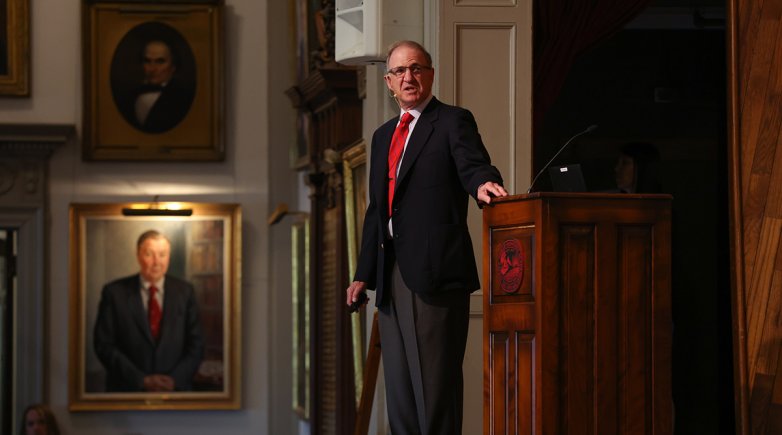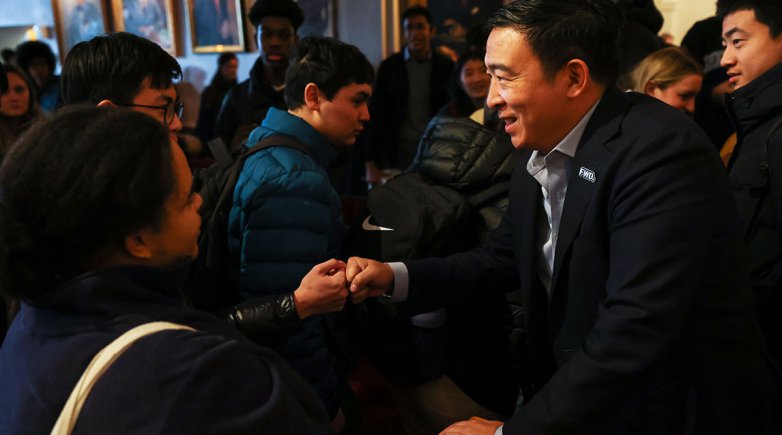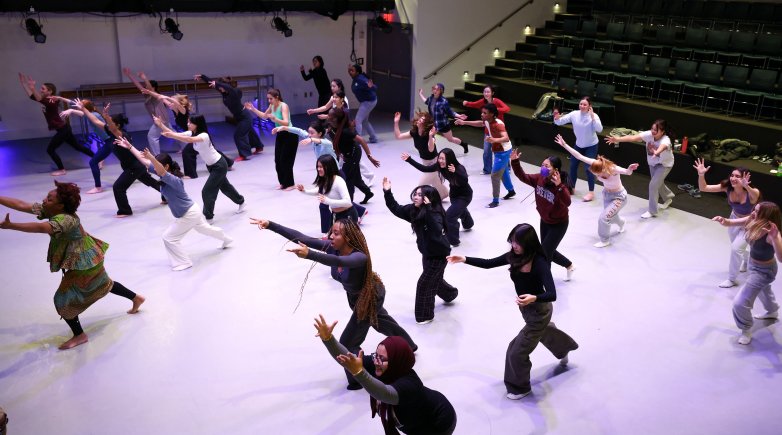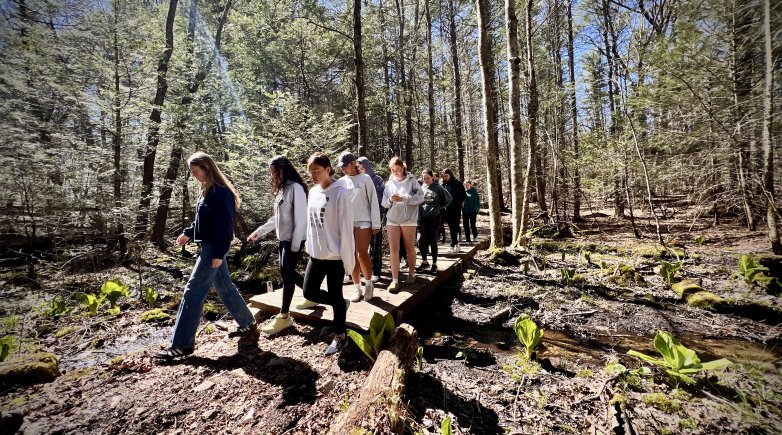Alum chronicles father’s remarkable journey of Holocaust survival
Andy Laszlo ’70; P’00, P‘04 addressed assembly to share Andrew Laszlo Sr.’s against-all-odds story of perseverance and success.
From his sober opening line, Andy Laszlo ’70; P’00, P‘04 gripped Tuesday’s assembly audience as he spoke about his father’s survival of the Holocaust. “Many of you are 18 years old … that’s how old my father was when he went into his first concentration camp.”
But the story of Andrew Laszlo Sr. is not one of despair, but rather perseverance in the face of unspeakable horror. In 2002, the junior Laszlo published his father’s memoir, “Footnote to History,” which tells a remarkable firsthand account of the atrocities of World War II, the search for a better life and ultimately, finding success in the emerging mediums of television and film.
As Laszlo shared with assembly, his father chose to keep the heartbreaking contents of his childhood in an increasingly antisemitic Hungary and early adult years in multiple Nazi labor camps from his family for half a century.
“Why did he keep a secret? Maybe he didn't want to relive his past. Maybe he thought it was too much for us to process or that it might define our lives and make us feel like victims.”
When the elder Laszlo did share his past, it was in the form of a book, sent to his son 50 years to the day from when he emigrated to the U.S. with $2 and the clothes on his back. Upon receipt, Laszlo called his father.
“He was in New York and I was in Montana and it was awkward. He was concerned how his oldest child might feel. I told him that I loved him and was proud to be his son. And from 2,000 miles away, I could feel the angst of 50 years falling off his shoulders.”
Once arriving in the states, Laszlo Sr. tapped into the same resourcefulness that enabled him to survive his persecution in war-torn Europe. A job with the U.S. Army filming bomb testing parlayed into an eventual decades-long career behind the camera. Laszlo was instrumental in broadcasting cultural moments like The Beatles' 1965 concert at Shea Stadium, Ed Sullivan’s sit-down interview with Cuba's Fidel Castro and eventually as a cinematographer for blockbusters like the 1982 Rambo film “First Blood.”
Members of the class of 1970 were in attendance to support their classmate, as was childhood friend Principal Bill Rawson ’71; P’08, who pointed out in his introduction that Laszlo’s address came a week and a day after Yam HaShoah, or Holocaust Remembrance Day.
“When he died, [my father] had a smile on his face,” Laszlo said. “He had come to America, kept the family name alive, and had had a great career. His life was the triumph of strong will over evil and his survival is what gave me and my family the gift of life.”



